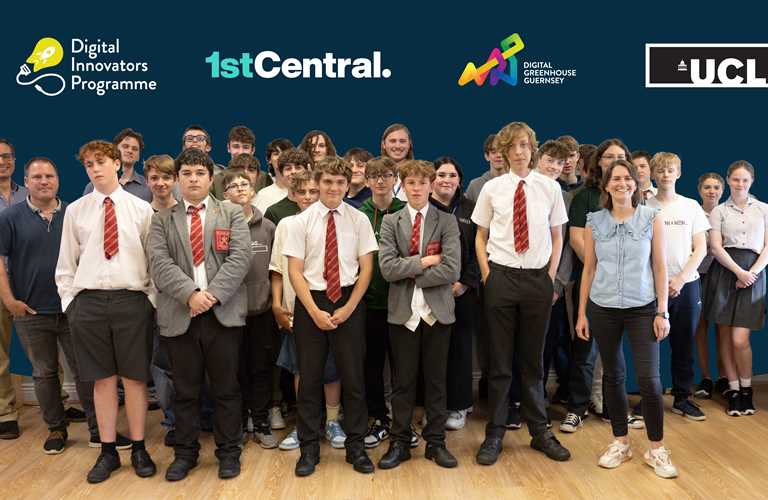Automation: facts, myths and opportunities
During National Coding Week, Simon Perks and Graham Lee held an insightful interactive workshop on what Automation really is - and how to identify the benefits for your organisation.
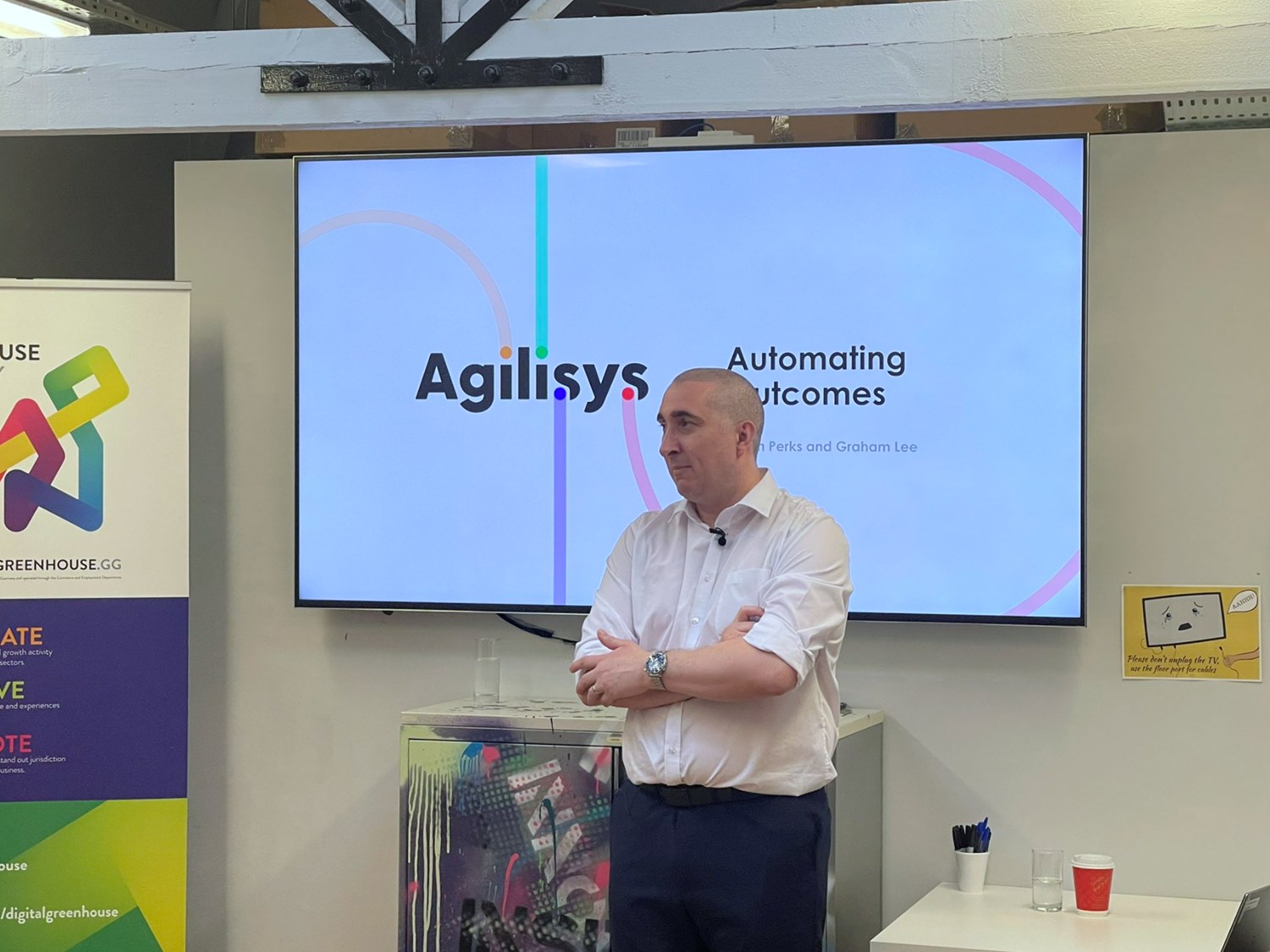
RPA, or Robotic Process Automation, is seen as the next big step in changing the landscape of work as we currently know it.
Simon explained that businesses should be leveraging technology, and using it to save both money and time. RPA robots are able to complete routine tasks based on a set of rules - they can copy and paste data, move files and folders, fill in forms and extract data - all without making the small errors that we humans do. Through automating these small, repetitive tasks, employees and businesses as a whole are able to focus their time on other work. Since automated robots can run their tasks 24/7 with no breaks and distractions, they make an obvious choice for businesses to complete a high load of repetitive work, leaving people to do less repetitive, more human-connected pieces of work. This makes employees more efficient, less bored and more fulfilled.
"Repeatable, reliable - they're accurate. They don't make mistakes... they can do it a lot faster than a human. They don't get bored of however many they've done that day."
Simon Perks, Agilisys' Automation Lead
In the argument of bots vs humans, Robotic Process Automation (RPA) highlights collaboration over competition. By automating repetitive tasks, people will be able to focus on other areas and gain jobs in industries such as the creative and digital sectors. The rise of RPA will likely see many jobs being at least partly automated, but with this new technology comes new opportunities for employment and career development. For example, with time freed up from mundane and repetitive tasks, we will be able to focus on work that requires emotional intelligence or more specialist roles. Humans by nature are complex beings - we are not designed to like and perform repetitive tasks. In order to be satisfied, we need variety and for our minds to be stimulated - this is where RPA can come in. RPA will simply change the way we all work, rather than replacing us - just like how computers changed the working environment.
Areas that largely benefit from RPA include Human Resources, Customer Service, Finance and Accounting and IT Service Management. RPA can be useful in recruiting, onboarding, payslip management, education and training, data extraction, and knowledge management. It is crucial that we use technology to help us and make our working lives easier. RPA is only as powerful as we make it - if we code in mistakes, it will endlessly replicate them without fault, but code it right and the sky's the limit.
Should we be worried that bots and automation will take our jobs? The short answer is no - RPA is designed for repetitive, rules-based tasks. Eliminating these tasks for workers means more time spent on fulfilling tasks, that involve human characteristics such as adaptability, empathy and human judgement. Automation is the future - it simply doesn't make sense to waste human hours on dull and repetitive work. The benefits of RPA outweigh the cons - imagine what we can do with extra time, headspace and creative focus. With new technology comes great opportunity, to be a driving force to better the community we must use it in the best way that we can, and work alongside automation rather than against it.
"What they can't replace is human ingenuity and actual problem solving".
Simon Perks, Agilisys' Automation Lead

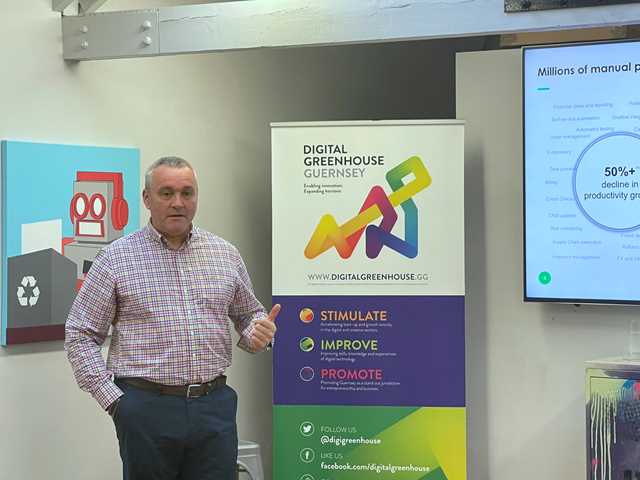
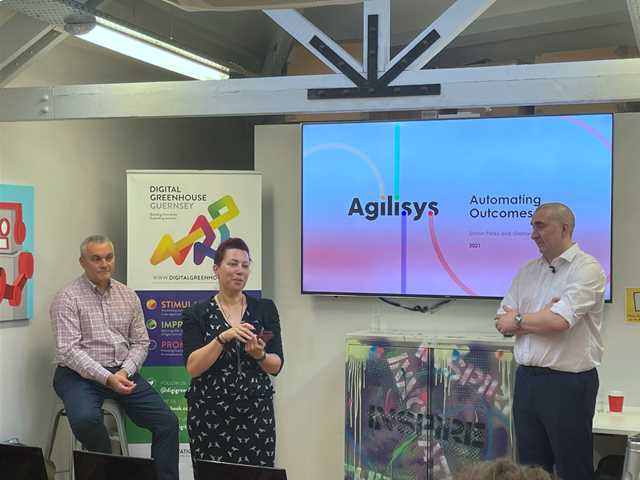

Find below our key takeaways and benefits of Robotic Process Automation:
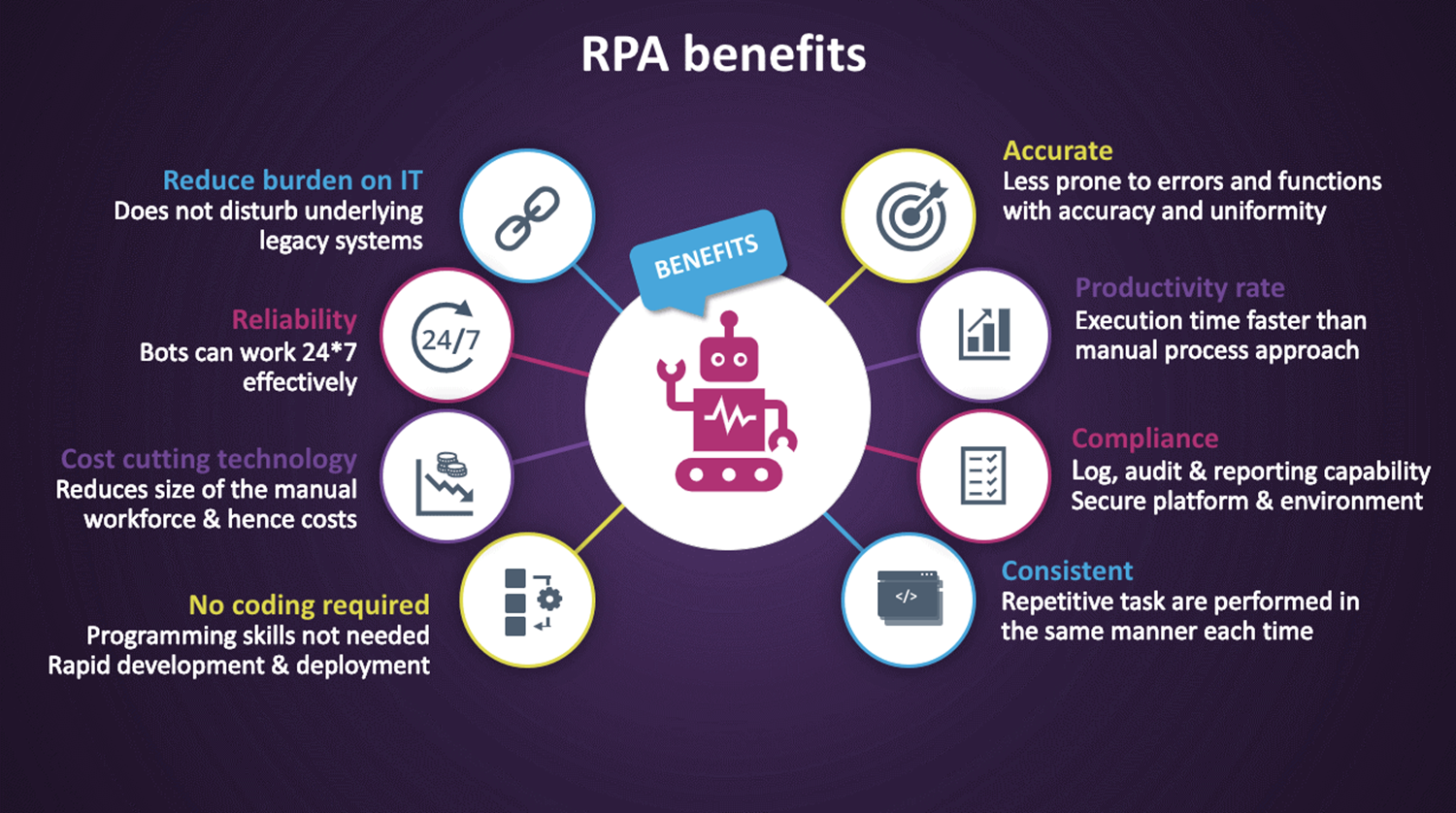
Evros
Increase in productivity and enhanced accuracy
Since bots can work 24/7 doing automated processes that humans no longer have to do, we are able to focus our energies and attention onto other tasks - such as ones that require emotional intelligence, or specialist knowledge. Additionally, the bots can complete the same tasks faster and with more accuracy - meaning that less time is spent going over the same work twice.
Since the robots are programmed to follow sets of rules, which they cannot deviate from, there is less room for error. Bots do not make typing errors, or get tired, therefore, accuracy is improved.
RPA frees up time for people
Through the automation of mundane, repetitive and heavy-load tasks, individuals and businesses can save time on menial tasks.
Increase in job satisfaction
Humans are designed to be creative, to use our minds and to problem solve. By automating mundane tasks, job satisfaction is improved as we can focus our attention onto more fulfilling aspects of our jobs.
Customer satisfaction
By freeing up workers from forms and tabulations, they will have more time to tend to customers and clients directly - leading to higher levels of customer satisfaction.
Watch the Livestream of the event here:
"With RPA, businesses become more efficient and productive, while work gets more interesting and meaningful for workers. Instead of eliminating a lot of jobs, RPA creates new possibilities and opportunities."
Agilisys

